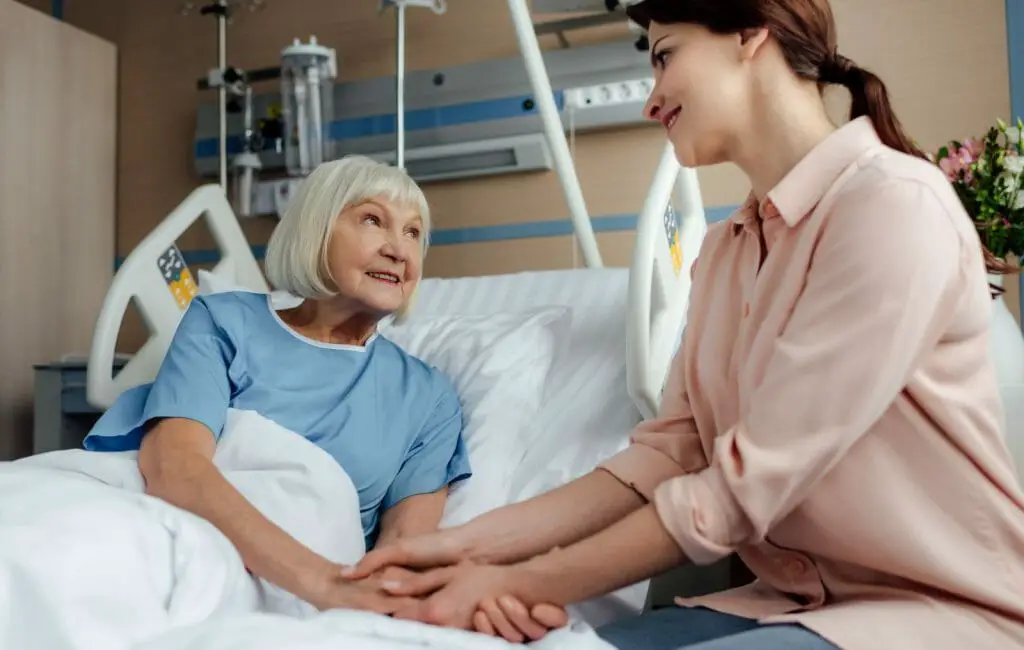
Introduction
Caring for a loved one with cancer can be an emotionally and physically challenging journey. As a caregiver, you play a crucial role in providing support, comfort, and assistance to your loved one during this difficult time. While the experience can be rewarding, it can also be overwhelming and financially draining. To help ease the burden, we’ve compiled a list of places where caregivers can access free resources, services, and support. These organizations understand the challenges you face and are dedicated to making your caregiving journey a little easier.
- American Cancer Society (ACS)
The American Cancer Society is a nationwide, community-based voluntary health organization dedicated to eliminating cancer as a major health problem. Founded in 1913, the ACS has been at the forefront of the fight against cancer, providing valuable resources, research funding, and support services to cancer patients, their families, and caregivers.
Services Offered:
a. Educational Materials: The ACS offers a wealth of free educational materials on various aspects of cancer care, from understanding the diagnosis and treatment options to managing side effects and coping with emotions. These resources are available in multiple formats, including booklets, brochures, videos, and online articles.
b. Support Groups: The ACS connects caregivers with local and online support groups, where they can share their experiences, learn from others, and gain emotional support. The ACS also offers the Cancer Survivors Network, an online community where caregivers can connect with others who have faced similar challenges.
c. 24/7 Helpline: The ACS provides a 24/7 helpline (1-800-227-2345) where caregivers can speak with trained cancer information specialists who can answer questions, provide guidance, and connect them with additional resources. The helpline also offers support in multiple languages through their Language Line service.
d. Financial Assistance Programs: The ACS offers various financial assistance programs to help cancer patients and their families cover the costs of transportation, lodging, and other cancer-related expenses. They also provide guidance on finding additional financial resources and navigating insurance issues.
e. Road To Recovery: The ACS’s Road To Recovery program offers free transportation to and from cancer treatment appointments for patients who do not have access to reliable transportation. Volunteer drivers donate their time and use of their vehicles to help patients get the care they need.
f. Hope Lodge: The ACS operates Hope Lodge facilities across the United States, providing free, temporary lodging for cancer patients and their caregivers who must travel away from home for treatment. Hope Lodge offers a supportive environment where guests can share their experiences and find comfort in knowing they are not alone.
g. Cancer Resource Connection: The ACS’s Cancer Resource Connection is a searchable database of local and national resources for cancer patients and their caregivers. This tool can help caregivers find support services, financial assistance programs, and educational materials tailored to their specific needs.
By offering these comprehensive support services, the American Cancer Society aims to ease the burden on caregivers and help them navigate the complex landscape of cancer care. Their compassionate approach ensures that caregivers have access to the resources and support they need to care for their loved ones and themselves during this challenging time.
Website: https://www.cancer.org/
- CancerCare
CancerCare is a national nonprofit organization dedicated to providing free, professional support services to cancer patients, their families, and caregivers. Established in 1944, CancerCare has been a pillar of support for those affected by cancer, helping them manage the emotional, practical, and financial challenges that often accompany a cancer diagnosis.
Services Offered:
a. Counseling: CancerCare’s licensed oncology social workers provide free, short-term counseling to help caregivers cope with the emotional impact of their loved one’s cancer diagnosis. They offer individual counseling, family counseling, and bereavement counseling, either in person, over the phone, or through video conferencing.
b. Support Groups: CancerCare offers a variety of support groups for caregivers, including online, telephone, and face-to-face groups. These groups provide a safe space for caregivers to share their experiences, learn from others, and gain emotional support.
c. Educational Workshops: CancerCare hosts free educational workshops and webinars led by experts in oncology, mental health, and caregiving. These workshops cover a wide range of topics, such as managing side effects, understanding treatment options, and navigating the healthcare system.
d. Financial Assistance: CancerCare provides limited financial assistance to eligible cancer patients and their families to help cover the costs of transportation, home care, childcare, and other cancer-related expenses. They also offer guidance on finding additional financial resources and navigating insurance issues.
e. Resource Referrals: CancerCare’s oncology social workers can connect caregivers with additional resources in their community, such as respite care, home health services, and legal assistance.
f. Publications and Resources: CancerCare offers a wealth of free educational materials, including booklets, fact sheets, and podcasts, covering various aspects of cancer care and caregiving. These resources can help caregivers better understand their loved one’s diagnosis, treatment options, and strategies for coping with the challenges of caregiving.
By offering these comprehensive support services, CancerCare aims to empower caregivers and help them navigate the complex landscape of cancer care. Their compassionate approach ensures that caregivers have access to the resources and support they need to care for their loved ones and themselves during this challenging time.
Website: https://www.cancercare.org/
- Family Caregiver Alliance (FCA)
The Family Caregiver Alliance is a nonprofit organization that supports and advocates for caregivers of adults with chronic health conditions, including cancer. They offer a variety of free resources, such as fact sheets, webinars, and online support groups. The FCA’s National Center on Caregiving also provides information on public policy, research, and caregiver services in the United States.
Website: https://www.caregiver.org/
- National Cancer Institute (NCI)
The National Cancer Institute is a valuable source of information for caregivers of cancer patients. Their website offers a comprehensive guide for caregivers, covering topics such as communication, managing symptoms, and coping with emotions. The NCI also provides a searchable database of cancer clinical trials, which can help you explore potential treatment options for your loved one.
Website: https://www.cancer.gov/
- Cancer Support Community (CSC)
The Cancer Support Community is an international nonprofit organization that offers free support and education to cancer patients and their caregivers. They provide a range of services, including support groups, educational workshops, and online resources. The CSC’s Cancer Experience Registry is a unique platform where caregivers can share their experiences and access resources tailored to their specific needs.
Website: https://www.cancersupportcommunity.org/
- Leukemia & Lymphoma Society (LLS)
If you’re caring for someone with blood cancer, the Leukemia & Lymphoma Society offers specialized support and resources. They provide free educational materials, financial assistance programs, and online support groups for caregivers. The LLS also offers a peer-to-peer support program, where you can connect with other caregivers who have faced similar challenges.
Website: https://www.lls.org/
- National Coalition for Cancer Survivorship (NCCS)
The National Coalition for Cancer Survivorship is a nonprofit organization that advocates for quality cancer care and offers resources for cancer survivors and their caregivers. They provide free publications, webinars, and podcasts on various aspects of cancer care, including caregiving, survivorship, and advocacy.
Website: https://www.canceradvocacy.org/
- Gilda’s Club
Gilda’s Club is a network of local affiliates that provide free emotional and social support to cancer patients, their families, and friends. They offer support groups, educational workshops, and social events in a warm, homelike setting. Gilda’s Club is named in honor of comedian Gilda Radner, who passed away from ovarian cancer in 1989.
Website: https://gildasclub.org/
- Cancer Hope Network
The Cancer Hope Network is a nonprofit organization that offers free, one-on-one emotional support to cancer patients and their caregivers. They match you with a trained volunteer who has experienced a similar cancer journey, providing an opportunity to share your concerns and gain valuable insights from someone who has been in your shoes.
Website: https://www.cancerhopenetwork.org/

Conclusion
Being a caregiver for a cancer patient, whether they are a family member or not, is a journey filled with emotional highs and lows, challenges, and moments of deep connection. As a caregiver, you play a vital role in providing support, comfort, and assistance to someone during one of the most difficult times in their life. This journey can be both rewarding and overwhelming, but it is a testament to the resilience of the human spirit and the power of compassion.
When you become a caregiver for a cancer patient, you quickly learn that the role goes beyond simply providing physical care. You become a confidant, a source of emotional support, and a beacon of hope for the person you are caring for. You are there to listen to their fears, share in their joys, and offer a shoulder to lean on when the weight of their diagnosis becomes too heavy to bear alone.
The challenges of caregiving can be immense, particularly when it comes to managing the practical aspects of cancer care. You may find yourself coordinating medical appointments, administering medications, and helping with daily tasks such as bathing, dressing, and meal preparation. These responsibilities can be physically and emotionally draining, but they are also an opportunity to deepen your bond with the person you are caring for and to demonstrate your unwavering commitment to their well-being.
As a caregiver, it is essential to recognize that your own well-being is just as important as that of the person you are caring for. It is not uncommon for caregivers to experience feelings of stress, anxiety, and even depression as they navigate the complexities of cancer care. It is crucial to prioritize self-care and seek support from friends, family, and professional resources to ensure that you can continue to provide the best possible care for your loved one.
One of the most powerful aspects of caregiving is the opportunity to connect with others who share a similar experience. Whether you are caring for a family member or someone outside of your immediate family, you are part of a community of caregivers who understand the unique challenges and rewards of this journey. By connecting with others, you can find solace in knowing that you are not alone and that there is a network of support available to help you navigate the caregiving experience.
In the end, being a caregiver for a cancer patient is a journey of love, compassion, and resilience. It is a testament to the strength of the human spirit and the power of connection. Whether you are caring for a family member or someone outside of your immediate family, your role as a caregiver is a vital and meaningful one. By embracing the challenges and rewards of this journey, you can make a profound difference in the life of the person you are caring for and find a sense of purpose and fulfillment in your own life.
Remember, as a caregiver, you are not alone. Reach out to support groups, organizations, and fellow caregivers to share your experiences, learn from others, and find the strength to continue on this incredible journey. Together, we stand united in our commitment to providing the best possible care for those affected by cancer.
